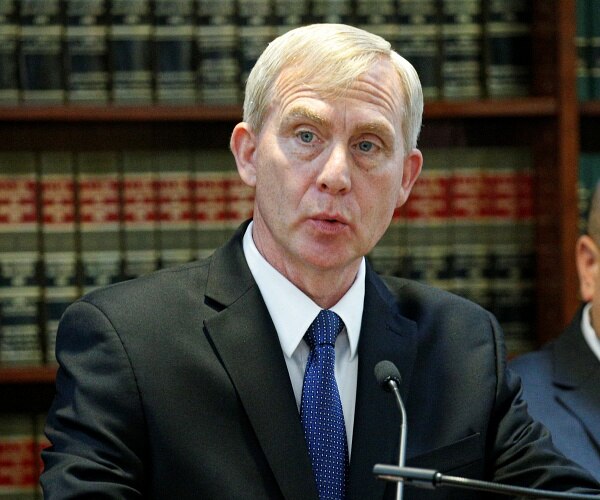Top U.S. Senate Republican Mitch McConnell on Wednesday said his party would allow an extension of the federal debt ceiling into December, a move that would head off a historic default with a heavy economic toll.
That could provide an off-ramp to a months-long standoff between President Joe Biden’s Democrats and McConnell’s Republicans, who were expected on Wednesday to block a third attempt by Senate Democrats to raise the $28.4 trillion debt ceiling.
“We will … allow Democrats to use normal procedures to pass an emergency debt limit extension at a fixed dollar amount to cover current spending levels into December,” McConnell said in a statement on Wednesday.
It was not clear whether Democrats would accept his proposal, as the two sides remained locked in a partisan blame game over tax and spending issues.
Top Senate Democrat Chuck Schumer – who along with Biden has pushed back on McConnell’s demand that the debt ceiling be hiked through a complex procedure known as reconciliation – did not immediately respond to questions about the offer.
McConnell’s proposal came shortly before a Wednesday afternoon vote that would open debate on legislation to suspend the debt limit until December 2022, after elections that will determine control of Congress for the next two years.
That passed the Democratic-controlled House of Representatives last week.
There are less than two weeks to go before the Treasury Department expects to run out of ways to meet the government’s expenses around Oct. 18. The Bipartisan Policy Center said on Wednesday that unemployment insurance payments, salaries for millions of federal employees and medical insurance payments could be delayed without a debt-ceiling hike.
Analysts say a default could upend the global financial system and cause millions of lost jobs.
Even a close call would likely be damaging. A 2011 debt ceiling dispute that Congress resolved two days before the borrowing limit was due to be reached caused stocks to tumble and prompted a first-ever credit downgrade for U.S. debt.
Moody’s Investors Service said on Tuesday it expects Washington will ultimately raise the debt limit, however, and U.S. stock indexes rose on Wednesday as investors grew more optimistic that Congress could reach a deal.
A more telling indication of investor relief was evident in the U.S. Treasury market, which would be directly affected by a U.S. default. Rates on 1-month T-bills – the securities most likely to be impaired by a failure of the government to pay interest or principal on the debt immediately after the deadline – dropped sharply in an indication that investors were again willing to buy them.
Democrats are looking at other options to resolve the standoff.
Biden said on Tuesday that Democrats might weaken a long-standing rule, known as the filibuster, which requires 60 votes to advance most legislation in the 100-seat Senate.
But that idea seemed unlikely to succeed, as a key centrist, Senator Joe Manchin, said he would not support it.
“I’ve been very, very clear where I stand on the filibuster. I’ve been very clear nothing changes,” Manchin said in a brief news conference on Capitol Hill.
Republicans have already used the filibuster requirement to block two previous attempts to raise the debt ceiling.
Republicans and Democrats are currently split 50-50 in the Senate with Vice President Kamala Harris holding the tie-breaking vote.
McConnell has said Democrats should use reconciliation to raise the debt ceiling, but Democrats have said that would be too convoluted and risky.
Reconciliation can be a long process, sometimes involving all-night sessions, but McConnell said on Wednesday that Republicans would support steps to speed it up.




